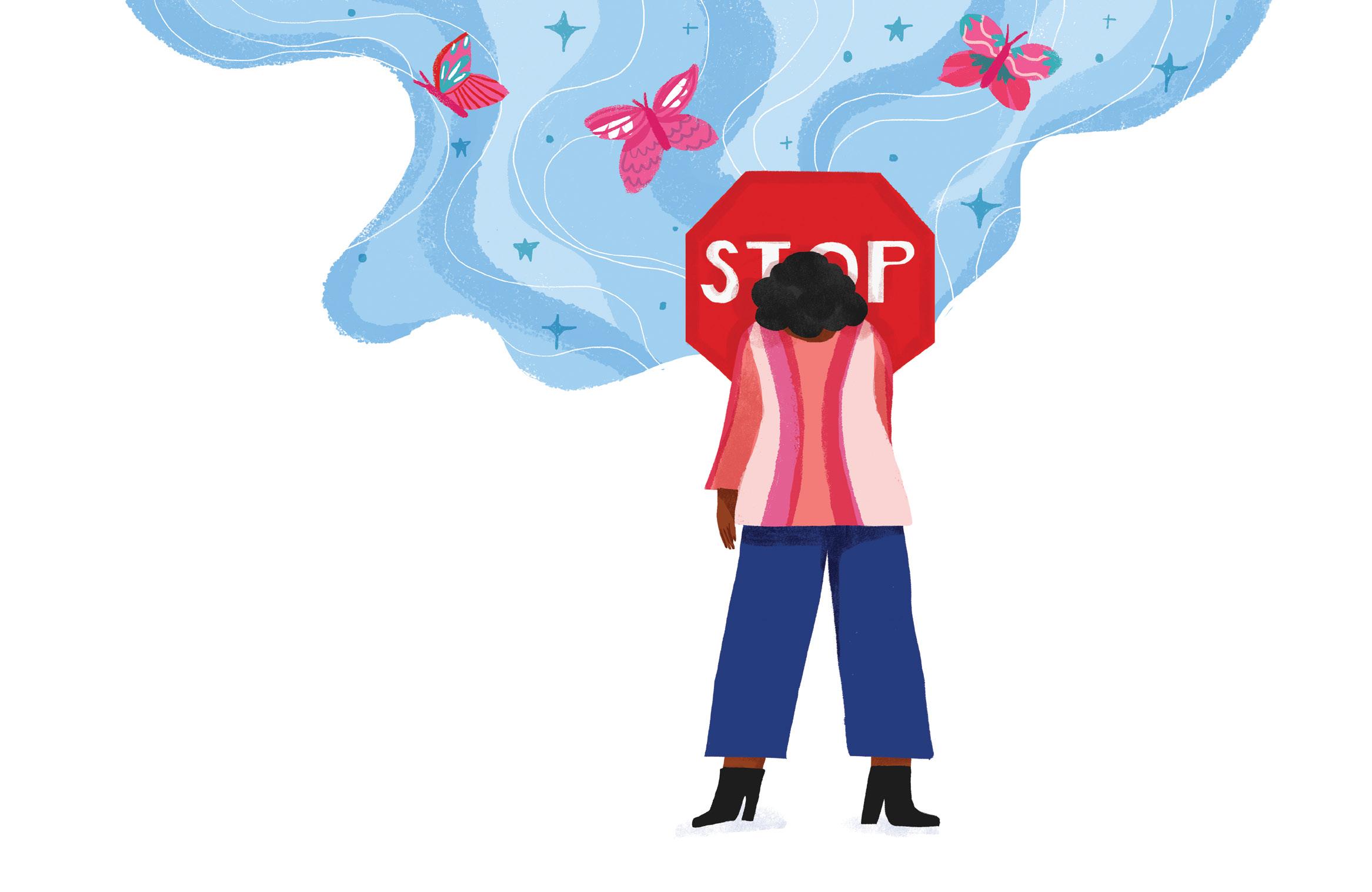
3 minute read
Bookmark This
THE JOY OF MOVEMENT How Exercise Helps Us Find Happiness, Hope, Connection, and Courage
Kelly McGonigal, PhD • Avery
Advertisement
McGonigal’s thesis is simple—as humans, we are hardwired for movement. She builds her case through a wide-ranging survey of scientific studies, interviews with movers of all kinds, and her own personal experiences as a group-fitness leader and enthusiast.
She starts with the “runner’s high,” which lights up the same reward center in the brain as cocaine and other addictive drugs do. But since addictive drugs don’t seem to serve any evolutionary purpose, McGonigal digs into studies that reveal the runner’s high may be connected not only to our hunting-and-gathering past, but also to the kind of cooperation that saw us sharing the spoils of our endeavors, and thus surviving together. From there, McGonigal’s off and running. Along the way she investigates links between synchronized movement and empathy; the euphoric self-transcendence known as “collective effervescence” that results from moving with a group, and how that can help build and strengthen communities; and what intense physical challenges can teach us about our own resilience. She interviews marathoners, dancers, a woman who rows with a crew of over-50s, a gym-owner whose focus is on people who are working with physical disabilities, and a guy who designs obstacles for Tough Mudder races.
McGonigal’s writing is personal, hospitable, and engaging, and her deep love of the subject is evident on every page. Peppered with personal stories that touch on hope, courage, resilience, and yes, joy, The Joy of Movement will have you turning pages faster—if only to get to the part where you put the book down, lace up your sneakers, and head out to claim your birthright as a human, moving.
Beyond Guilt Trips
Mindful Travel in an Unequal World
Anu Taranath • Between the Lines
Growing up in the US as the child of Indian immigrants, Taranath, a professor at the University of Washington, felt she never quite fit the image of an American. Nor was she fully at home when studying in India. She describes “the familiar patterns of shame and guilt that lure me in like a comfortable sofa.” Beyond Guilt Trips arose from her conviction that, to bridge social and cultural differences, we must get in touch with global inequality and our discomfort in facing it. Only then, she says, can we “know that our differences might not be everything.” Enlivened by her travel stories—at once tense, challenging, and brightly beautiful—Taranath’s book may become required reading for those who wander, and those who want to.
TAKE IN THE GOOD Skills for Staying Positive and Living Your Best Life
Gina Biegel • Shambhala
This new journal and guidebook is not only incredibly fun-looking, with its distinctive yellow-and-gray theme, playful fonts, and encouraging cartoons; it’s also written by a psychotherapist and author who’s delivered Mindfulness-Based Stress Reduction to teens (and their families and communities) for over a decade. In this book, Biegel zeroes in on helping teens understand neuroplasticity, the process by which our brain changes in response to our experiences—and how directing our attention to the positive, i.e. “taking in the good,” trains our brain to be happy and resilient. There’s plenty to read in here, plus lots of prompts to write, move, and try out a variety of skills for emotional health. Really, it’s all good.
Richard Robb • Yale
Over the past few decades, a growing body of literature has tried to explore why we do what we do: study what we study, buy what we buy, practice what we practice, marry who we marry. So-called “classical economics”—which has dominated throughout the modern era—posits a person most of us believe to be utterly unreal: the rational actor. Can you honestly say that all, or even most, of the choices you make in life are based on a rational weighing of the pros and cons of the available choices?
In response to this silliness, behavioral economics has grown, landing more of our decisionmaking in the realm of urges, needs, desires, biases. Some contemplative practitioners have been attracted to behavioral economics because it speaks to the need to navigate our emotions, rather than simply sharpen our reasoning power. It’s no small thing, since our collective choices add up to a world—and all its attendant problems.
Columbia University professor and investment firm CEO Richard Robb now enters the fray with Willful, his attempt to provide a way of thinking about choice that covers the territory ruled by both rational choice and behavioral drives. In brief, he distinguishes actions resulting from choices based on purpose (achieving an end), and actions we take simply for their own good. In the former we make comparisons; in the latter, the choices are made unconditionally. It’s a short book that takes us on an intriguing ride, asking us to explore some age-old questions freshly.








